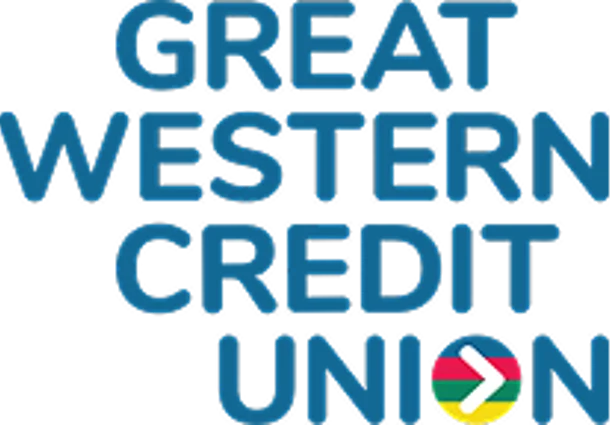Clear your debts for less

Starting 2020 in debt? You’re not alone. The period before New Year is a prime time for borrowing to mount up, as many of us get swept away with the spirit of Christmas giving… not to mention those big fat festive parties.
If January feels like ‘the morning after the night before’ for your finances, all is not lost. You may well find you can clear your debts quicker - and save money too - by following our 3-step action plan.
Step 1: Do the groundwork
To find the best way of managing your debts, you need to get a complete picture of your finances. Before you do anything else, make a list of how much you owe each lender. For each debt, note down:
1) What the APR is
2) How much you repay monthly
3) How many months it would take you to repay at the current rate
4) The total to repay (repayment amount x months left)
This will leave you clearer on your current debt situation, as well as giving you the information you need to work out the best strategy for dealing with it. Next, you need to create a budget. Once you understand how much money you’ve got coming in and going out each month, you’ll know how much you’ve got leftover to put towards repayments.
To make this task simpler, try using a budgeting app or an online budget planner. Here’s a planner we recommend from the Money Advice Service.
Step 2: See if you can save money by switching
You might be able to save money on your borrowing by ‘consolidating’. This is where you transfer multiple debts to a single loan, by taking out a new loan to pay off the others. First shop around for a loan with a lower APR than the ones you’ve got currently. The APR won’t give you the full story, however, so to find out for sure whether it makes sense to switch you’ll need to compare:
1) the overall amount you’d repay if you stuck to your current borrowing, and
2) what you’d pay in total if you switched.
Add up the repayment totals for each of your current debts (see point 4 above).
Next ask your current lenders how much it would cost to pay off each debt early and in full (including any early repayment charges.) Added together, these figures will give you the new amount you’d need to borrow to consolidate. You can then use this handy loan calculator to work out how much you’d pay for the new loan in total.
If the new loan would cost you less overall than your current borrowing, it’s probably a good idea to consolidate.
When looking to consolidate, remember:
You may not qualify for every low-interest loan. Your credit rating will determine whether you can borrow at the lowest interest rates. But don’t forget that at Bristol Credit Union we’re often able to help people who don’t qualify for credit elsewhere, so consolidating with one of our personal loan could be a good option.
Make sure your new loan is unsecured. If you take out a ‘secured loan’, this means the loan company could sell your house if you fail to repay. Due to this risk, it doesn’t make sense to use a secured loan to consolidate unsecured debts like personal loans and credit cards.
Consolidation options
Here are two possibilities that could save you money:
1) Balance transfer credit card
These cards offer a 0% or low rate of interest for a limited time when you transfer your debts. They can be a good option if you qualify, but they also come with risks.
You must keep up with the minimum repayments on a balance transfer card or else you’ll be faced with penalties and could lose the cheap rate. Plus if you only pay the minimum each month, you’ll likely still have a balance to pay when the cheap rate ends and the interest shoots up.
Balance transfer cards usually come with an upfront fee, which can add quite a bit to the cost of borrowing.
2) Bristol Credit Union loan
If a balance transfer card comes with a set-up fee of 3% or more, switching to a low-rate personal loan from BCU could end up costing you less overall - especially if you work for one of our Employer Partners. Our rates start from 6.9% APR and we don’t charge set up or application fees.
Visit our loans page to find out more.
Step 3: Overpay the smart way
If you’ve got enough money in your budget to repay more than the monthly minimums, overpaying to clear your debts earlier will almost always save you money - even if there are charges for doing so.
If you’ve got enough money in your budget to repay more than the monthly minimums, overpaying to clear your debts earlier will almost always save you money - even if there are charges for doing so.
Check your T&Cs to find out whether overpayments are allowed, whether you have to notify your lenders in advance and how much you can overpay before you’re faced with penalties.
If you haven’t consolidated down to a single loan, it’s time to start a ‘debt avalanche’. This is a strategic way of clearing debts that lets you repay faster and faster as you go - shortening the time you’re in debt and cutting the overall cost of repayment.
Here’s how to do it:
1. Prioritise repayments - Focus on the debt with the highest rate of interest first.
2. Repay the maximum you can afford on your priority debt while making the minimum repayments on all the others.
3. Once you’ve cleared your priority debt, move on to the one with the next highest rate of interest.
The key is not to reduce the overall amount you’re repaying as you strike off each loan. Keep paying your monthly minimums then use the rest of your repayment budget to overpay on your priority loan. This should be the quickest and cheapest way to clear your debts.
Are you looking to refresh your finances? You could consolidate your existing borrowing into one manageable loan from Bristol Credit Union. Visit our debt consolidation loan page to learn more.
